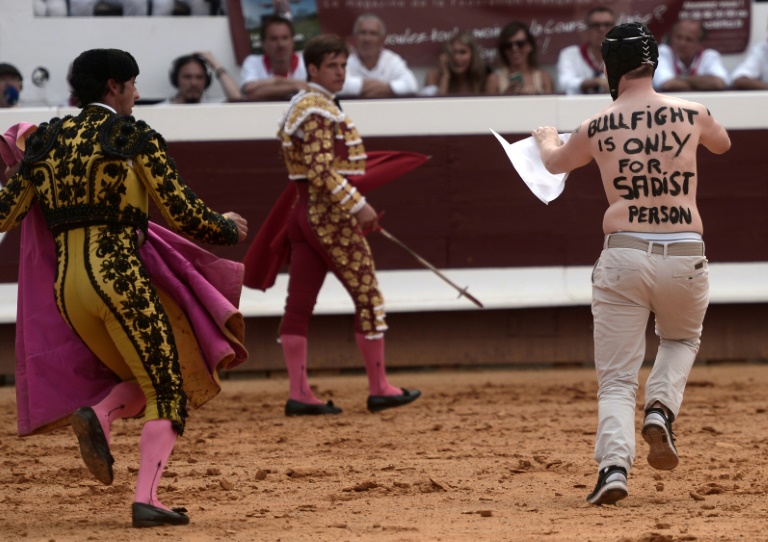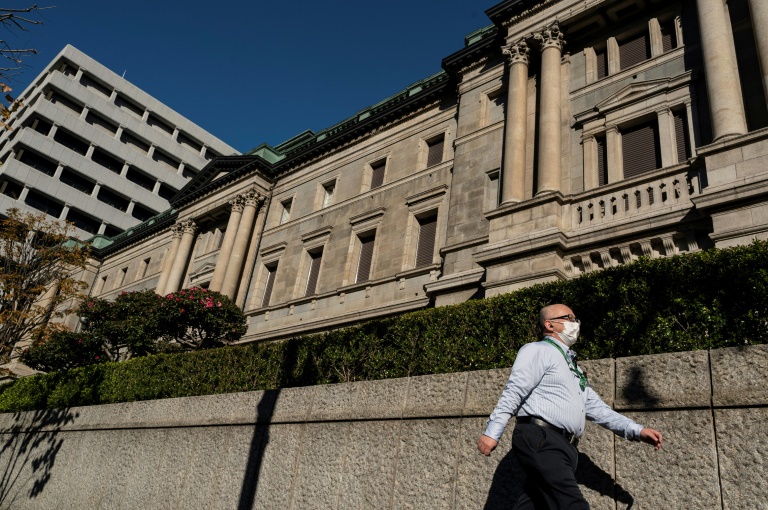Bullfighting is defended as a local tradition in many towns in southern France
A bid to ban bullfighting in France was abandoned Thursday in parliament, spelling relief for lovers of the traditional blood sport and dismay for animal rights’ activists.
The 577-seat national assembly had looked set to vote on draft legislation that would have made the practice illegal.
But after lawmakers filed more than 500 amendments, many of them designed to take up parliamentary time and obstruct the vote, the MP behind the bill withdrew it.
“I’m so sorry,” Aymeric Caron, a left-wing MP, vegan and animal rights’ campaigner, told the national assembly as he announced the decision in raucous and bad-tempered scenes.
Though public opinion is firmly in favour of outlawing the practice, the bill had already been expected to be rejected by a majority of lawmakers who are wary about stirring up the bullfighting heartlands in the south of the country.
“We need to go towards a conciliation, an exchange,” President Emmanuel Macron said on Wednesday, adding that he did not expect the draft law to pass. “From where I am sitting, this is not a current priority.”
His government has urged members of the ruling centrist coalition not to support the text from the opposition France Unbowed party, even though many members are known to personally favour it.
During a first debate of the parliament’s law commission last week, a majority voted against the proposal by Caron, who denounced the “barbarism” of a tradition that was imported from Spain in the 1850s.
“Caron has antagonised people instead of trying to smooth it over,” a lawmaker from Macron’s party told AFP on condition of anonymity.
The bill proposes modifying an existing law penalising animal cruelty to remove exemptions for bullfights that can be shown to be “uninterrupted local traditions”.
These are granted in towns such as Bayonne and Mont-de-Marsan in southwest France and along the Mediterranean coast including Arles, Beziers and Nimes.
Around 1,000 bulls are killed each year in France, according to the National Observatory of Bull Cultures.
– ‘Tackling death’ –
Many so-called “bull towns” depend on the shows for tourism and see the culture of bull-breeding and the spectacle of the fight as part of their way of life — idolised by artists from Ernest Hemingway to Pablo Picasso.
They organised demonstrations last Saturday, while animal rights protesters gathered in Paris — highlighting the north-south and rural-versus-Paris divide at the heart of the debate.
“Caron, in a very moralising tone, wants to explain to us, from Paris, what is good or bad in the south,” the mayor of Mont-de-Marsan, Charles Dayot, told AFP recently.
Other defenders of “la Corrida” in France view the focus on the sport as hypocritical when factory farms and industrial slaughter houses are overlooked.
“These animals die too and we don’t talk enough about it,” said Dalia Navarro, who formed the pro-bullfighting group Les Andalouses in southern Arles.
Modern society “has more and more difficulty in accepting seeing death. But la Corrida tackles death, which is often a taboo subject,” she told AFP.
Previous judicial attempts to outlaw bullfighting have repeatedly failed, with courts routinely rejecting lawsuits lodged by animal rights activists, most recently in July 2021 in Nimes.
The debate in France about the ethics of killing animals for entertainment is echoed in other countries with bullfighting histories, including Spain and Portugal as well as Mexico, Colombia and Venezuela.
In June, a judge in Mexico City ordered an indefinite suspension of bullfighting in the capital’s historic bullring, the largest in the world.
The first bullfight took place in France in 1853 in Bayonne to honour Eugenie de Montijo, the Spanish wife of Napoleon III.
adc-cs-iw-adp/sjw/pvh











